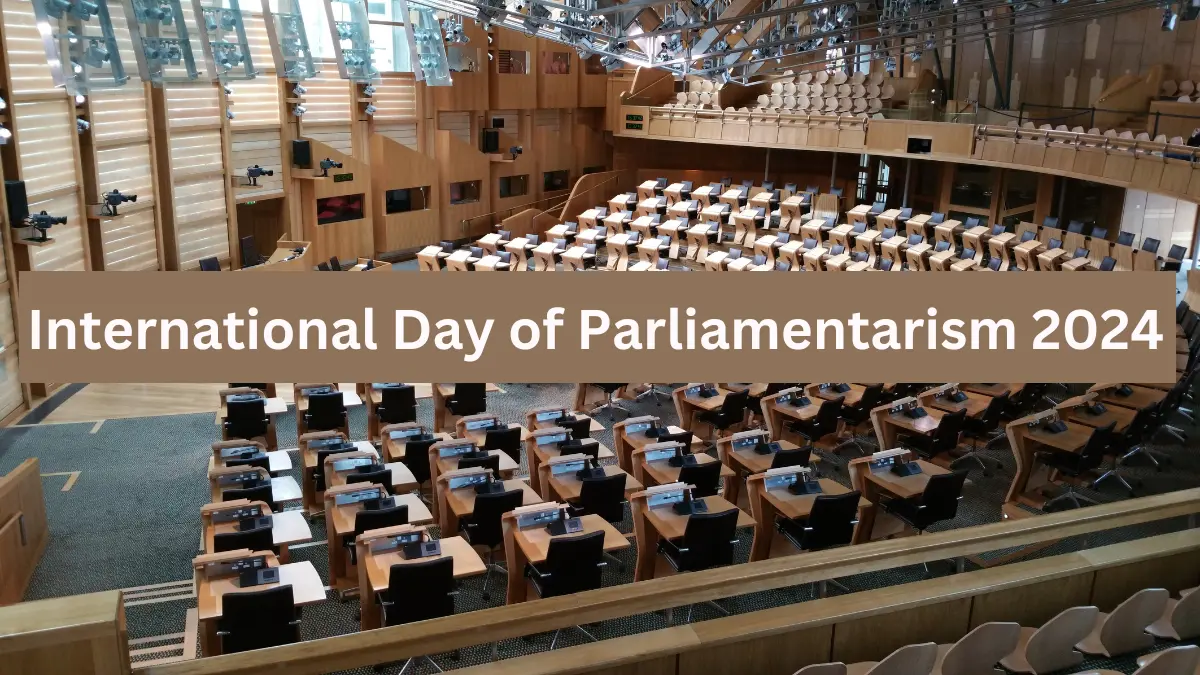Every year on June 30th, nations around the world mark International Day of Parliamentarism, honoring the role of parliaments in promoting democracy, accountability, and good governance. This observance serves as a reminder of the vital importance of parliamentary institutions in shaping laws, policies, and representing the interests of citizens.
Foundations of Democracy:
Parliamentarism lies at the heart of democratic governance, providing a platform for citizens to participate in the political process and hold their representatives accountable. In parliamentary systems, the legislative branch plays a central role in enacting laws, overseeing the executive branch, and representing the will of the people.
Democratic Values and Principles:
International Day of Parliamentarism celebrates the core values of democracy, including transparency, inclusivity, and the rule of law. Parliamentary institutions uphold these principles by ensuring that decisions are made through open debate, consensus-building, and respect for minority rights. By upholding democratic norms, parliaments contribute to the stability and legitimacy of democratic systems.
Representing the People:
Parliaments serve as the voice of the people, representing diverse interests and perspectives within society. Elected representatives debate and legislate on behalf of their constituents, advocating for policies that address their needs and concerns. Through parliamentary democracy, citizens have a direct stake in the decision-making process and can hold their representatives accountable through elections and public scrutiny.
Oversight and Accountability:
One of the key functions of parliaments is to provide oversight of the executive branch and ensure accountability in government. Parliamentary committees scrutinize government actions, investigate misconduct, and hold officials responsible for their decisions. Through mechanisms such as parliamentary inquiries, debates, and hearings, parliaments serve as guardians of democratic accountability.
Promoting Dialogue and Cooperation:
International Day of Parliamentarism promotes dialogue and cooperation among parliamentarians at the national, regional, and international levels. Parliamentary diplomacy fosters dialogue, builds consensus, and strengthens cooperation on shared challenges such as climate change, terrorism, and human rights. By engaging in dialogue and collaboration, parliamentarians can work together to address global issues and promote peace and stability.
Challenges and Opportunities:
While parliamentary democracy has made significant strides in advancing democratic governance, challenges remain. Issues such as corruption, polarization, and political gridlock can undermine the effectiveness of parliamentary institutions. International Day of Parliamentarism provides an opportunity to address these challenges, strengthen democratic norms, and promote greater transparency and accountability in governance.
Looking Ahead:
As we celebrate International Day of Parliamentarism, let us reaffirm our commitment to democratic values and principles. By upholding the rule of law, promoting transparency, and fostering dialogue, parliaments can play a crucial role in building inclusive and resilient democracies. Together, let us work towards a future where parliamentary democracy thrives, ensuring that the voices of all citizens are heard and represented.
International Day of Parliamentarism is a reminder of the fundamental importance of parliamentary institutions in upholding democracy and promoting good governance. As we commemorate this day, let us celebrate the contributions of parliaments to democratic societies and reaffirm our commitment to the principles of transparency, accountability, and the rule of law. By working together, parliamentarians and citizens alike can build a brighter future grounded in democratic values and principles.








